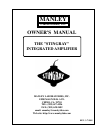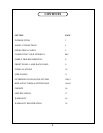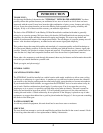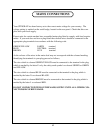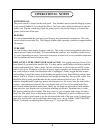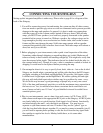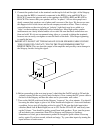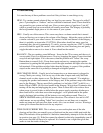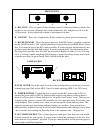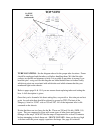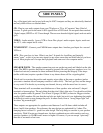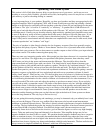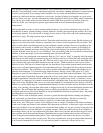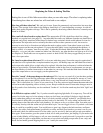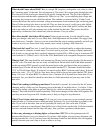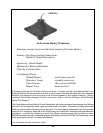
CONNECTING YOUR STINGRAY
Setting up this integrated amplifier is rather easy. Please refer to page 8 for a diagram of the
back of the Stingray.
1. You will be connecting power last and turning the system on after all other connec-
tions are made to prevent ugly noises as wires are connected and to prevent possible
damage to the amps and speakers. In general, it is best to make any connections
with the power off or the volume control turned all the way down. With all tube
amps, you MUST have speakers (or a load box) properly connected to the speaker
terminals before power is turned on. Without a speaker, the voltage swings can be
large enough to possibly cause an electrical arc inside a tube, tube socket or trans-
former and this may damage the amp. Solid state amps operate with no speaker
connected but generally don't tolerate a short circuit. Most tube amps will tolerate a
short, but we try to avoid this.
2. Before plugging in your interconnects, take a quick visual inspection of the tubes.
Sometimes either through shipping or unpacking things get jostled. Make sure all
tubes are firmly in their sockets and standing straight up. You might also verify that
none have turned white inside. That indicates that air has leaked inside the tube (or
the vacuum leaked out!). Though it is rare, a tube is sometimes cracked or broken in
shipping. It would need to be replaced before powering the amp.
3. On rectangular chassis it is easy to specify front, back, sides etc - but on the 6 sided
Stingray we should adopt a convention and call the sides that have the RCA inputs
and input switching as Left-Back and Right-Back. We provide 4 left inputs on the
Left-Back and 4 right inputs on the Right-Back. We realize splitting left and right
this way with individual input select switches may be a problem for some - sorry.
We did it this way because a good percentage of people rely on only one source
95% of the time and because it provides you with the maximum stereo separation at
the lowest cost. Yes, it could have been more convenient but it would have cost
more if more we had to use 10 "runs" of good shielded wire and it wouldn't have
sounded quite as good.
4. Plug in your interconnects, one at a time, from each source, ie CD, Tuner, AUX,
then connect each input to the appropriate RCA jack on the Stingray. All RCA jacks
are clearly labled as to a typical function. Each input is for all intents functionally
and electronically the same - only the labels are different. You may have to
separate or split interconnects an extra 12 inches if they are the "paired" type or
slide the loop that holds the pair together. If you need to connect a turntable (vinyl!)
you will need a separate phono preamp to raise the level from the tiny signal from
the cartridge to regular line levels. Manley builds these, as do some other
manufacturers.
6



